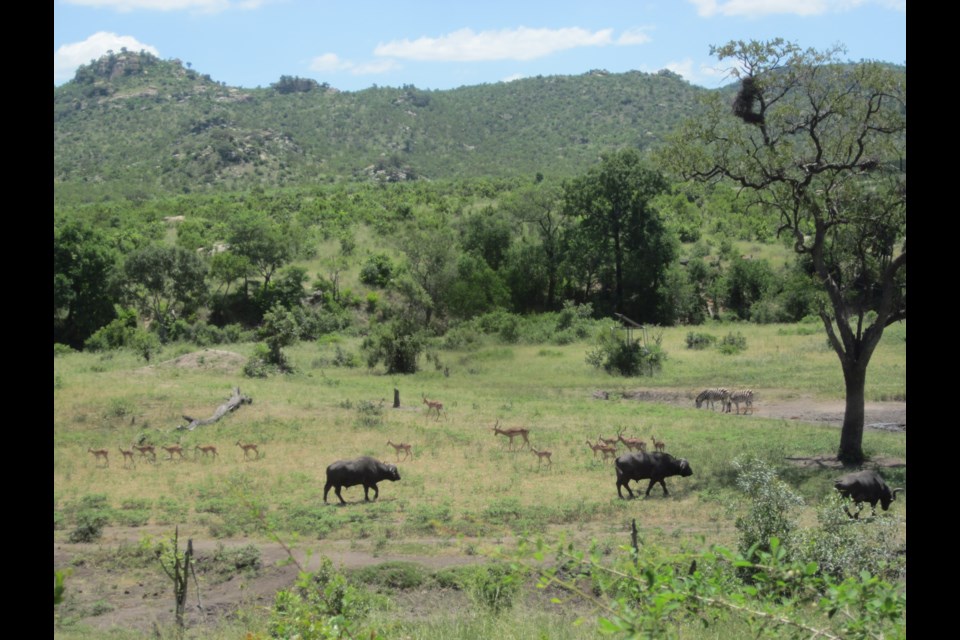UNITY — In the previous instalment of the series, a young David Keay of Unity travelled to work in a gold mine near Johannesburg, South Africa. He frequently wrote letters to his parents and siblings who remained in Unity. These letters were shared among David's nieces and nephews, while the originals are in possession of his eldest niece, Irene.
This is part two of the series.
The year was now 1937 and David was still working the gold mines. He had the opportunity to do some travelling with his Uncle Sandy, meeting new people along the way. By mid-February, David was attending classes at the technical college in Springs. Classes were Mondays and Fridays, 7. to 10 p.m., allowing students to work during the day.
A letter dated Feb. 21, 1937, explains that Sandy purchased a bike for David so he can cycle to Springs for his classes. Cycling took 30 minutes each way. He also says his high school education helped him greatly as he was taking chemistry. He does ask his parents to send his high school physics book for some additional help with the classes he’s taking.
Even though David is working hard both in his studies and in his work, he does find time to relax. He mentioned he saw the movie The Westerner at The Bioscope Theatre in Johannesburg. In his correspondence back to the family farm, he mentions both he and Sandy will be coming back to Canada in five years. He also discusses that his parents should use wire and cement on the outside of the family farmhouse, which is commonly known as stucco now.
A letter dated April 4, 1937, reads,
“70 men killed. 35 at gold mine died from the underground gas. The other 35 died when the cage ‘ran away’ and they went crashing down the shaft almost 6,000 feet.”
In early May, Sandy attended the annual general South African Association of Assayers meeting and dinner, held in the newly built Victoria Hotel on Plein Street in Johannesburg. The original hotel was built in 1899 and was demolished in 1936.
The city and other locals had decorated the community to celebrate the coronation of King George VI, which was held May 12, 1937. Thousands of tons of wood and a few hundred gallons of oil were near Springs to celebrate the new King. It ended up being the largest bonfire in the empire and could be seen from 30 miles away. David and Sandy’s gramophone is also part radio, where they were able to hear some of the coronation celebration. The day after the coronation, the first electric train ran from Johannesburg to Springs, which will be less noisy.
One of David’s letters near the end of May talks about using an electric iron to press his clothes, a luxury many Saskatchewan folks did not yet have.
May 30, 1937:
“Largest smelt with 26 gold bars worth nearly a million dollars. Special broadcast from Kruger National Wildlife Reserve had wild animals rounded up and with the use of microphones one heard lion roars and sounds of other animals.”
David’s letter dated June 5 says it was the shortest day, with sunrise at 6:45 a.m. and sunset at 5:45 p.m. Many of the miners had to check in at Phthisis Bureau, which is mandatory every six months. When David arrived, he had to wait six months before applying for his “red ticket.” He successfully passed his exam, allowing him to take a position in the crushing plant or go underground.
By the end of June 1937, changes to the mail service had been made. All mail from South Africa to other parts of Africa and Great Britain was now being sent by air. David was not sure if Canadian mail was going to Great Britain first. David is living 25 miles from Heidelberg, which has a large cemetery where many of the British soldiers who fought in the Boer War are buried. It is also home to several baboons that come out in the late evenings.
More of David’s story will be shared over the next while, so please watch for the continuation in an upcoming issue of the Unity-Wilkie Press Herald.




